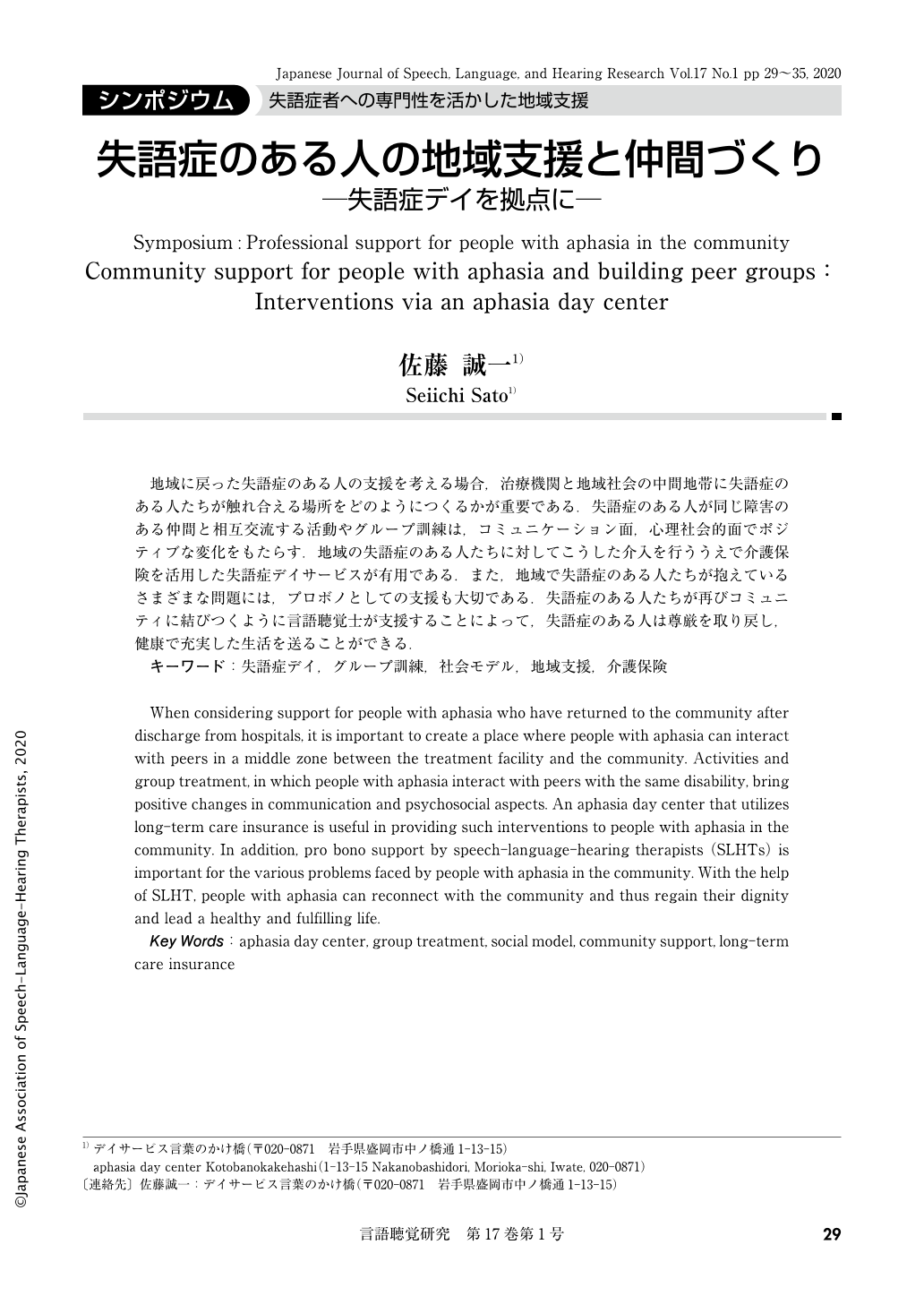Japanese
English
- 有料閲覧
- Abstract 文献概要
- 1ページ目 Look Inside
- 参考文献 Reference
- サイト内被引用 Cited by
地域に戻った失語症のある人の支援を考える場合,治療機関と地域社会の中間地帯に失語症のある人たちが触れ合える場所をどのようにつくるかが重要である.失語症のある人が同じ障害のある仲間と相互交流する活動やグループ訓練は,コミュニケーション面,心理社会的面でポジティブな変化をもたらす.地域の失語症のある人たちに対してこうした介入を行ううえで介護保険を活用した失語症デイサービスが有用である.また,地域で失語症のある人たちが抱えているさまざまな問題には,プロボノとしての支援も大切である.失語症のある人たちが再びコミュニティに結びつくように言語聴覚士が支援することによって,失語症のある人は尊厳を取り戻し,健康で充実した生活を送ることができる.
When considering support for people with aphasia who have returned to the community after discharge from hospitals, it is important to create a place where people with aphasia can interact with peers in a middle zone between the treatment facility and the community. Activities and group treatment, in which people with aphasia interact with peers with the same disability, bring positive changes in communication and psychosocial aspects. An aphasia day center that utilizes long-term care insurance is useful in providing such interventions to people with aphasia in the community. In addition, pro bono support by speech-language-hearing therapists (SLHTs) is important for the various problems faced by people with aphasia in the community. With the help of SLHT, people with aphasia can reconnect with the community and thus regain their dignity and lead a healthy and fulfilling life.

Copyright © 2020, Japanese Association of Speech-Language-Hearing Therapists. All rights reserved.


